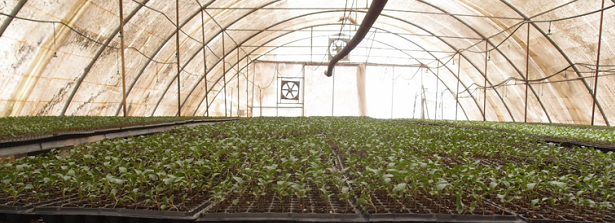Seed Money Projects for International Partnerships

The opportunities for the Dutch agri-food sector to cooperate with partners in Africa, Asia, and North and Central America have been explored in 16 Seed Money Projects (SMPs), financially supported by the Dutch Topsectors Agri & Food and Horticulture & Starting Materials. The results of these projects, carried out in 2019, were presented in a public meeting mid-December 2019.
The SMPs focused on building new international networks. Some projects studied the feasibility of new international production chains. Projects often carried out an initial exploration of the (im)possibilities for international cooperation.
Information about the 16 projects implemented in 2019 and those of earlier years can be found on the website of the Dutch Topsector Horticulture & Starting Materials (partly in Dutch).
The highlights and main lessons learned of the four projects realized in Africa and the four projects accomplished in Central Asia are presented below. These lessons are mainly addressed to Dutch investors which have an interest in (further) collaboration with African, American or Asian partners.
- It can be more impactful and profitable to focus on the “software” instead of the “hardware” of an innovation. For example, improving the knowledge of consumers on how to use a product properly through training and/or MOOCs may be more effective than improving the design of a new technology.
- Every project plan needs to be based on a proper assessment of the political, economic, social and natural environment in a country. The extent to which projects have carried out such a context analysis differs.
- It is wise to explore alternative collaboration and agri-sourcing options based on expected disruptive changes such as climate change.
- It would be good to develop tools to bridge the orange light period, which means the time an organization needs to develop a project plan further and find project partners.
- To successfully develop a project, it is important to identify the target market, start simple (e.g. low investments), set up pilot projects, follow and/or provide training and education programmes, involve local suppliers, and create an international network.
- To realize the potential of high-tech production, a sufficiently high knowledge level is conditional.
The role of the local government was discussed several times in the meeting. To promote the sustainability of an innovation, the involvement of the local government is essential. Moreover, to ensure an innovation to be accepted/embraced by the local community and/or companies, they should be (actively) involved from the initial phase of the project onward.
The website of the Topsector Horticulture & Starting Materials served as information source for this blog (partly in Dutch).
For a full list of projects (including 15 newly awarded projects in 2020), and the links to the information and PowerPoint presentations shared during the meeting, please visit this page (partly in Dutch).





